AngelSense GPS Is Life-Changing
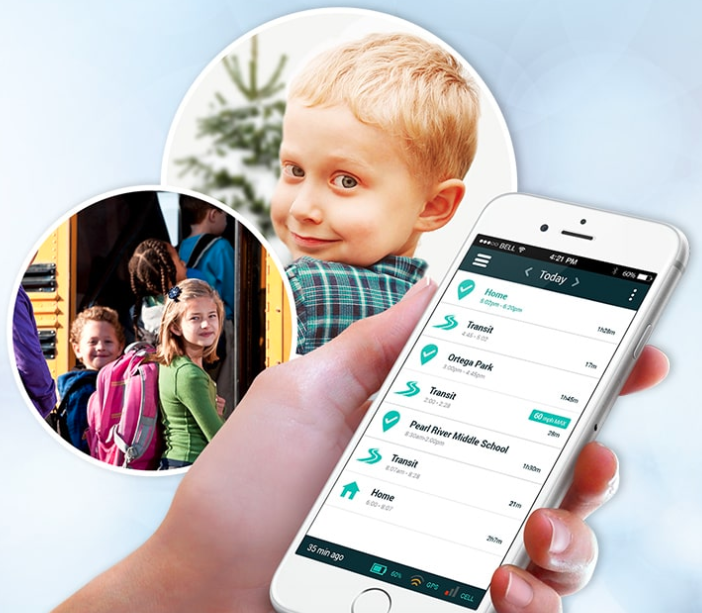
Every Story is a Success with AngelSense
Parents of children with autism experience a level of fear and anxiety in moments that are ordinary for other children. For children with special needs, there is always risk. Children with autism are prone to dangers like wandering, and many of these children are also nonverbal. For many families, there is not a single moment of relief.
The designers of AngelSense – parents of special needs children themselves – designed the AngelSense GPS tracker with these special children in mind. AngelSense addresses the concerns of parents with special needs, and with unique technology, the safety of children with challenges like autism is prioritized.
AngelSense Is Life-Changing
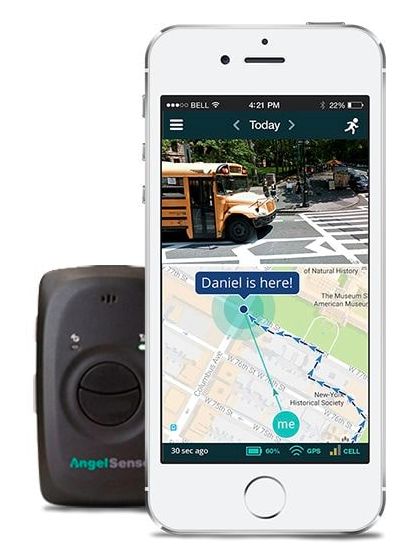
Consider the story of this family, that despite every alarm bell, locked door, and strong supervision, couldn’t always prevent their child with autism from wandering from home or other locations. Emergency services were called if their child went missing, and desperate alerts to the neighbors and teachers were made. Although their child was found safe each time, there was always worry that their child couldn’t be located in time to prevent tragedy. It wasn’t a matter of if, but when, the frantic search for their child would begin again. With wandering tragedies hitting the news regularly, the parents’ fear was palpable.
Then this family discovered AngelSense GPS for autism, and everything changed. It was like another set of eyes and ears that altered the entire scope of the day – from the moment their child left for school to the minute he went to bed at night. It made moments like the day he got off the school bus but never made it to the classroom so much easier to handle. In the shuffle of arriving students, the administrators lost track of this child for no more than seconds, but that’s all it takes. There was no way of knowing if the child had gone inside the building or had wandered off school grounds.
Found in Minutes
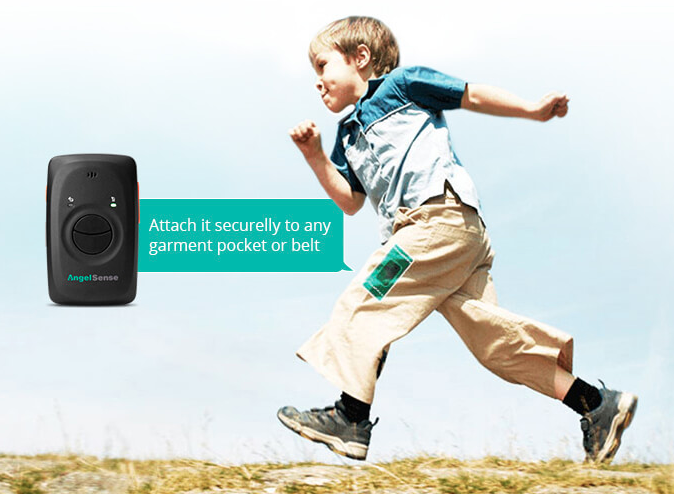
The AngelSense GPS tracker attaches discreetly to the child and is non-removable without the parent’s key. It communicates with an app on the parents’ cell phone. When their child wandered from the premises, AngelSense sent an alert to immediately inform the parents, who activated Runner Mode. In Runner Mode, live updates are given every 10 seconds to guide you directly to your child’s location as they are moving in real time. Luckily, this child was found in minutes rather than hours, completely safe and sound.
Had the child been in the building, the parents would have used a special alarm to help guide them to the child’s location. The parents can use the app’s 2-way voice feature to speak to and calm their child when needed, and to support him from afar. The call is picked up automatically on the GPS device which is secured to the child’s clothing. AngelSense also alerts caretakers to any unexpected stops or late departures, so you would know if your child’s school bus was late.
Peace of Mind
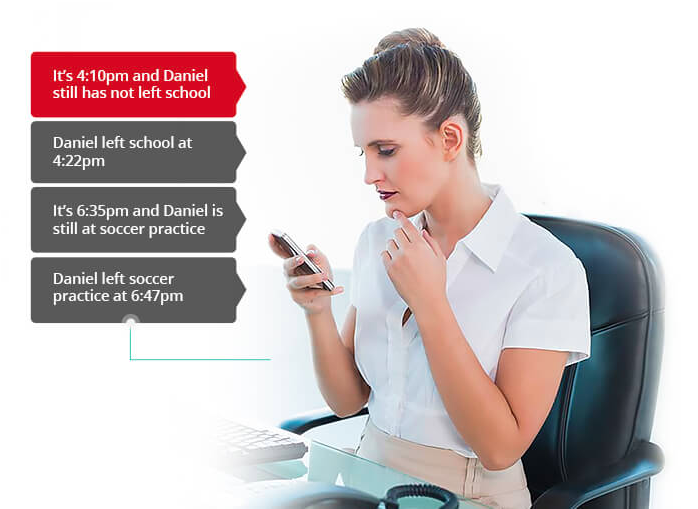
No other device offers the same freedom to both individuals and families. The AngelSense GPS tracker gave this child freedom to move in the hallways independently, inspiring confidence and improving life satisfaction. They no longer needed a 1:1 aid at school, and their child could learn to navigate familiar places on their own, building his confidence and independence. The family was also able to go on vacation for the first time, enjoying a new experience together without having to worry about elopement in an unfamiliar place. If their child was to wander, they had the tools in their hands to find him quickly and prevent harm.
When a child with autism wanders, it is a life-threatening event. AngelSense saves lives every day. The peace of mind that this family was given is invaluable. The AngelSense GPS tracker does more than offer reassurance to families of children with special needs and freedom to individuals; it has been proven to avoid harmful outcomes and save lives. There is no greater gift than peace of mind and the knowledge that your child is safe, where ever they are. Children with special needs are not always capable of announcing when they need help, but with the innovative technology that is being made available to families from AngelSense, help is always right around the corner.
If I Need Help makes wearable iD and offers a free Caregiver controlled special needs registry for our loved ones who may wander or need assistance in a critical moment.
A Voice for the Silent Ones
Reprinted/Posted with permission from the Daily Word
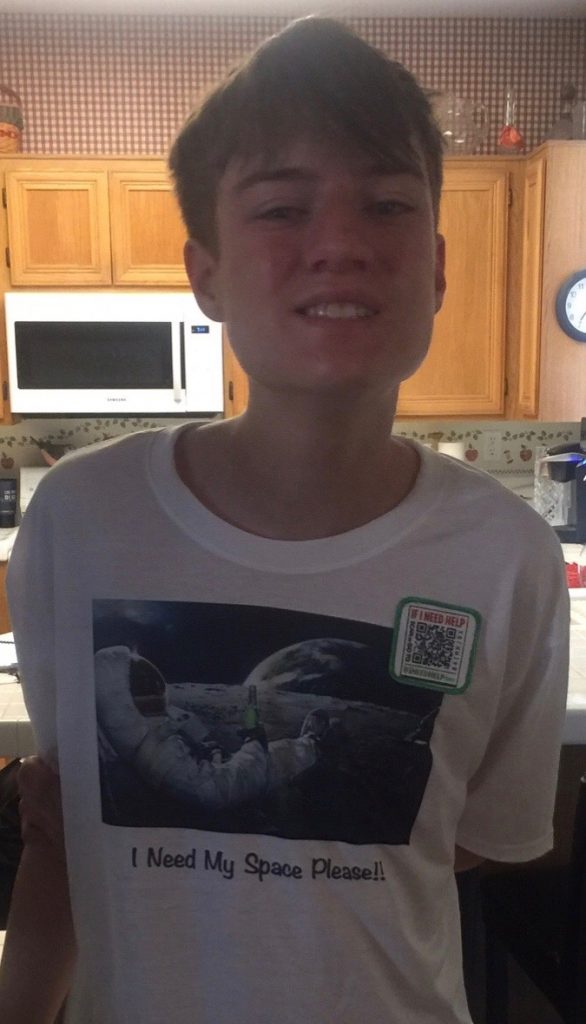
My life isn’t at all what I imagined it would be.
As a young person, I traveled, spending a lot of time in India and backpacking around Alaska. I figured I’d live in a cabin in the Rockies and spend much of my time hiking, hanging out in nature, and meditating. I even met my husband, Bruce, at a meditation center.
But the truth is, I barely ever have a quiet moment—and I never go hiking. At 46, my life isn’t what I thought it would be. It’s better.
Three years after our daughter Grace was born, I gave birth to our son, Jay. When Jay was about 2-and-a-half years old, Bruce and I started to suspect that something wasn’t right. We thought he should be talking more. He interacted differently with toys—constantly holding them but rarely playing with them.
When Grace was in kindergarten, we talked to a speech therapist at her school about Jay. After having him evaluated, we learned he was, indeed, delayed. When he was 3, we enrolled him in special education.
Jay started saying sentences,
but that didn’t last long. He had a major regression and lost all speech. He began running around the house screaming and engaging in other behaviors he’d never displayed before.
When Jay was diagnosed with autism, we were devastated and heartbroken. I wanted to hole up in a dark room and cry, but Bruce and I knew we had to pull it together and be advocates for our son. We consulted with a mother of an autistic child who told us step-by-step what to do to get help. We were able to get a significant amount of services for our son because we wouldn’t take “no” for an answer.
We’ve worked hard to give Jay the best possible life, to keep him safe. That’s why we were mortified in 2011 when Jay got lost at his school. Another mother found him alone on the grounds, just inside the gate. She knew Jay and how to approach him. She was able to take him by the hand and escort him to the office. Another time he got lost at camp.
An Idea Was Born
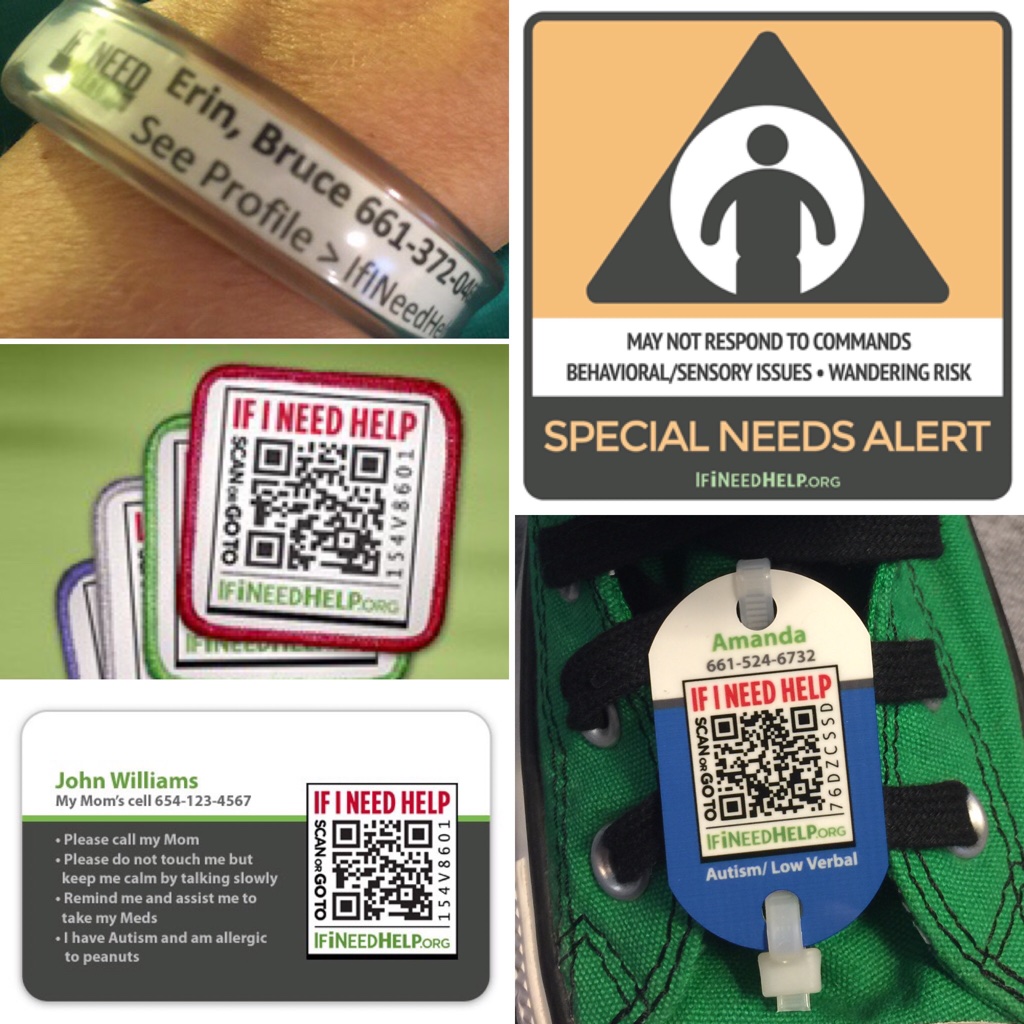
These frightening situations prompted us to found If I Need Help, a nonprofit organization aimed at keeping children and adults—especially those with special needs—safe in potentially dangerous situations.
When we came up with the idea for If I Need Help, Bruce and I were brainstorming; looking for ways to keep people like our son safe in emergency situations. It was then—when we were open and seeking—that this divine idea was able to land.
We created a variety of products—everything from patches to pins, clips to shoe tags— each with a special QR code. When the person is found, the code can be scanned by a smartphone or tablet, or their number can be entered on our website to access pertinent information in an emergency. These products can, quite literally, save lives.
Reaching Others
A woman named Denise Carter shared a heartwrenching story on her Facebook page, “And Then They Grow Up.” Denise was driving to McDonald’s with her adult son, Matthew, who has Down syndrome, autism, and is nonverbal. A woman talking on a cell phone ran a red light and hit Denise’s car at 40 mph. Although Denise was incapacitated, she was alert enough to know that her son, while unhurt, wouldn’t be able to communicate anything about himself, including his name.
Denise discovered our company after the accident and told her Facebook followers about our products. Her story, posted on our ifineedhelp.org website, went viral. In just a few days, we had more than a thousand orders and membership on our website quadrupled. I couldn’t think about the magnitude of what was happening. I focused instead on being thankful— and on making our new customers feel special.
I’ve had a lot of sadness about my son’s disability, but my faith has remained steadfast. Through our nonprofit, I believe we’re serving a higher purpose—one I could never have imagined for myself.
My Purpose in Life
At 13, our Jay is a big boy. He just started junior high. He finds joy in blowing bubbles. He loves to run and jump. He enjoys watching and caring for people. He likes to feed me.
But Jay also has a lot of anxiety. We drive around the canyons around our home in Santa Clarita, California, because it’s one of his favorite pastimes. When he’s escalating, I start to chant. While he’s very low verbal, Jay comes into the chant. Before long, he’s peaceful again.
Sometimes when he’s agitated, I’ll have him sit on the couch, put his hands in his lap, close his eyes, and meditate. While he doesn’t stay there long, it changes his entire demeanor. These kinds of experiences tell me he’s a very spiritual young man.
I’ve always felt that at the end of my life, I’m going to say it was Jay who brought me to my purpose in life.

Erin Wilson is cofounder of the nonprofit ifineedhelp.org with her husband Bruce. Their son Jay has severe autism and had gotten lost in the past. Creating If I Need Help has been a labor of love to protect him and others who have special needs.
Expert Interview Series: Erin Wilson of If I Need Help on Medical ID Bracelets For Elderly Adults
This interview was originally on the mmLearn.org website: https://goo.gl/UuZNUj
Erin Wilson is a Special Needs Mom whose son was lost in the past without the ability to ask for help or provide personal information on his own. Her solution was to create a non-profit, If I Need Help, offering a wearable iD and a special needs registry. Learn how this wearable iD is different from those you have seen before.
If I Need Help was founded to help your son, who suffers from Autism. What did you feel was missing from the medical alert bracelets that already existed, that you hoped to remedy with If I Need Help?
Our system is completely caregiver controlled. The caregiver creates the profile and special needs registry and can edit whenever necessary. Also, many families are on a budget so our membership is completely free and the products are very affordable.
If I Need Help isn’t just a medical alert bracelet, as you offer a number of wearable iD products, like shoe tags or pins. What are some benefits of having other kinds of iD tags, other than just medical alert bracelets?
I always start with my son’s needs in mind because he is my center and heart. Due to significant sensory needs he will not tolerate wearing a bracelet. He does keep his shirt on so we have the patches sewn to all his shirts. Many of the other products were developed from the feedback of the community. Such as the custom iD card for people who do not need the code that links to the profile to be seen all the time but available in an emergency.
The custom shoe tags get the most orders. People really like those. Some parents have said my child will not keep shirts and shoes on. So we came up with custom temporary tattoos. We also have safety alerts on window clings, bumper stickers, magnets and keychains. We try to have something for everyone. Our newest product is a pouch with the iD card info on it that medicine can be carried in. With the free membership you can print out your own code so I get contacted by people of unique ways they are using it to meet their needs.
If I Need Help lets users scan for the tag when lost, with a smartphone or tablet. What are some situations where this might be necessary? What sorts of things can be prevented, using this information?
The original idea was for when someone lost the patch, shoe tag or other item gives notice that this is a person who needs help and then provides the information on how to help. Now this has expanded out to helping people who may just need help during a critical situation such as Epilepsy, mental illness, allergies, asthma, and more. The profiles explain how to assist them.
If I Need Help also allows for the online profile to be updated, in real-time. When would that option need to be implemented? What are the benefits of real-time profile updating?
When my son was included on the 6th grade field trip I edited his profile to include his one-on-one aide as his contact in case he ran from her at the museum. I was nervous about him darting into another room and getting out of sight. So it can have the contacts changed in real-time along with the additional information section as behaviors and symptoms change. Also, many of our members are children so their pictures need updating as they grow. One Mom told me when they go to an amusement park she takes his picture and edits it into the profile so in case he gets lost then she knows exactly what he is wearing and can show the picture with profile.
How can wearable medical ID bracelets help give caregivers peace of mind, for themselves and their loved ones?
I gifted some patches, pins and clips to a special ed teacher and she started crying and hugging me. She said she wants to take the kids on field trips but has real fear of losing them and now this helps her feel better about it. Another time I sent patches to a special needs girl scout troop in the Bronx where the parents were afraid for the troop to do outings. The troop leader presented to the parents how the patch works and she was given permission to take the troop out into the community. Another member, a wonderful older woman in Florida ordered a keychain. She was afraid to leave her house because she thought she may fall. She said she is getting out more because she feels safer carrying her info.
How can other kinds of wearable medical alert devices, like pins and shoe tags, help convince people who might be self-conscious about wearing a medical device?
Everyone is unique and that is why we have tried to create a variety of products. My son needs his code to be very obvious because he needs 24-hour care. For people who are independent and only need it to be seen in an emergency we offer the iD cards, keychains and dog tags.
Your medical alert devices’ primary audience is people suffering from mental disabilities, like Autism or Down’s Syndrome. Why is If I Need Help particularly useful for people suffering from mental disabilities? What are some things that are particularly to elderly medical alert users, that medical alert bracelets can also help remedy?
Autism is a neurological disorder and people with Autism often have normal or even high IQs.
If I Need Help offers a way to wear iD and information. Elderly people often have more extensive medical info such as medications to list in the profile. People who have dementia or Alzheimer’s who need memory care help do wander frequently. Many are then unable to find their way back or provide their contact info on their own.
A lot of information can be communicated with engraved medical alert bracelets, like blood type, allergies, or even someone’s faith. First of all, how can this information be literally life-saving, in the right circumstances? How does If I Need Help’s model improve on the engraved medical bracelet model?
Our custom products of patches, keychains, shoe tags and bracelet have 2 lines above the code and one below to enter what the caregiver wants on those lines. Most often they put the person’s name, contact number on the second line then the diagnosis at the bottom. Then the code is there linking to the profile. We also offer a free special needs registry. The caregiver answers as much as they want about the medical, communication and behavioral info. There are questions like when leaving the house does he usually turn left or right? Can he swim? Where would he go or not go? And more. These are the questions a first responder would ask during a critical missing. It is better to answer these while calm and have a clear mind then when in a panic situation. This can be printed out and kept in house/car/purse or emailed to the first responder during the crisis.
95% of medical responders report checking for medical ID bracelets or devices, in case of an emergency. Keeping this in mind, why should anyone who’s concerned with their elderly loved ones well being make sure they are wearing a medical ID or alert bracelet or device?
Knowledge is power. This will provide the first responder with what the needs are of your loved one immediately.
People who wear medical alert bracelets are found to have fewer hospital admissions and shorter stays, according to the New England Journal Of Medicine. How can medical alert bracelets, like If I Need Help, help elderly patients enjoy their lives and live independently for as long as possible?
I strongly believe in inclusion of people of all ages and abilities. This gives peace of mind to go out into the community and know their info is a click away if needed.
Want to learn more about how to care for your special needs patient or aging loved one? Access our free online caregiver videos today!




